Civic body’s non-functioning facilities shown as paragon of waste management while praiseworthy and award-winning efforts by residents find no mention in documentary
A documentary to showcase the Gurugram municipal corporation’s accomplishments, screened on March 17, drew the residents’ ire after it showed a non-functioning composting plant in the Nirvana Country area as a paragon of waste management. The movie also mentioned other compost-making plants but when a DNA team visited these plants, none of them were found to be fully functional.
Among the viewers was Union Minister of State for Planning Rao Inderjit Singh. The documentary emphasised the efforts of the Municipal Corporation of Gurugram (MCG) to help various Residential Welfare Associations (RWAs) in the city to make compost out of wet waste.
The documentary, showing the Nirvana Country Township plant situated on a vast stretch of civic land, was shot just a couple of days ahead of the screening. The plant, however, has not been functioning for the last few months, revealed a caretaker on the site. An RWA volunteer, who was quoted in the documentary, said: “The MCG officials visit the plant regularly.” RWA President Sanu Kapila said: “The machine is non-functional but we are composting manually.”
Most of the people who saw the documentary later were left bewildered.
According to sources, MCG’s own plant in part-1 area of Sector 15, which cost nearly Rs 50 lakh to set up, is shut. The waste is lying in the open, giving rise to a foul smell. When queried about the plant, which was also shown as functional in the documentary, MCG Additional Commissioner Amit Khatri said: “Due to the construction on the National Highway (NH), the plant is not working. But, residents are segregating waste on their own.”
The residents living close to the plant, however, told DNA: “It only processes garden waste generated in parks and on roads. We give our waste to waste collectors.” Other residents confirmed that they do not segregate the waste. Waste collector Rajan Mahto said: “We collect garbage bags from every house and take out useful waste, such as plastic and glass.” He also confirmed that wet and dry waste is not segregated.
According to the Ministry of Urban Development (MoUD) reports, municipal agencies in India spend 5-25 per cent of their budget on Solid Waste Management (SWM), of which collection and transportation constitute 80-95 per cent. Most of the Gurugram waste is dumped at the Bandhwari plant situated in the Aravalli range.
Meanwhile, many RWAs in Gurugram that voluntarily took up the waste segregation and composting initiatives long before the Swachh Bharat Abhiyan and were fully efficient were not even mentioned in the documentary.
In 2013, various environmentalists had highlighted the hazardous impact of waste on the ecosystem, following which various citizen-based environmental groups and RWAs had initiated a de-centralised system of waste management, without any support of the civic body.
In 2014, the Vaastu Housing Society became the first RWA in the city to set up a compost plant. “It cost us almost Rs 1.25 lakh and we pay nearly Rs 4,000 for its maintenance. Now, we don’t have to buy manure for gardens and pots,” RWA President Ajay Nayar said. The Society received three national level awards under the Swachh Bharat Abhiyan. It was also identified as the second-most proactive RWA by the MoUD.
Similarly Regency Park 2, a condominium housing more than 500 families, has been able to segregate more than 95 per cent of its wet waste generated daily. Explaining its functioning, citizen volunteer Priya Mehrish said: “It took us a few days to make our residents aware of the process. We have strict policies. If the waste is not segregated -- dry waste in blue bags and wet waste in green bags -- we do not collect it from houses at all.”
Sahara Grace, another such association, has also seen success in this regard. RWA President Mona Jain said: “We have a lot of gardens and they require a lot of manure. We decided to make compost organically in our own residential complex. It cuts the cost of buying fertilisers and manure from outside.”
According to the SWM Rules, 2016, issued by the Ministry of Environment and Forests, it is the duty of the local authority and the municipality to framebye-laws for waste segregation and to create public awareness.
According to Swati Sambyal of the Centre of Science and Environment, an expanding city like Gurugram is a critical spot for biodiversity and environment. “Centralised waste management requires a lot of labour and is a threat to environment. Decentralisation is the only way forward,” she said.
“What is really happening in Gurugram is that the municipality is setting up costly plants without the involvement of waste generators. It should first spread awareness among the citizens,” she further said.
The dwellers of low-income areas, however, are still not aware of the decentralised waste management system and depend fully on collectors who dump all the waste in landfill sites.
When queried about the difference between the approaches of MCG and private RWAs, Sourabh Bardhan, a service provider for compost plants, said: “There is no involvement of waste generators in MCG plants, but RWAs are involving residents.”
![submenu-img]() Meet India's highest paid director, charges 30 times more than his stars; not Hirani, Rohit Shetty, Atlee, Karan Johar
Meet India's highest paid director, charges 30 times more than his stars; not Hirani, Rohit Shetty, Atlee, Karan Johar![submenu-img]() Indian government issues warning for Google users, sensitive information can be leaked if…
Indian government issues warning for Google users, sensitive information can be leaked if…![submenu-img]() Prajwal Revanna Sex Scandal Case: Several women left home amid fear after clips surfaced, claims report
Prajwal Revanna Sex Scandal Case: Several women left home amid fear after clips surfaced, claims report![submenu-img]() Meet man who studied at IIT, IIM, started his own company, now serving 20-year jail term for…
Meet man who studied at IIT, IIM, started his own company, now serving 20-year jail term for…![submenu-img]() Gautam Adani’s project likely to get Rs 170000000000 push from SBI, making India’s largest…
Gautam Adani’s project likely to get Rs 170000000000 push from SBI, making India’s largest…![submenu-img]() DNA Verified: Is CAA an anti-Muslim law? Centre terms news report as 'misleading'
DNA Verified: Is CAA an anti-Muslim law? Centre terms news report as 'misleading'![submenu-img]() DNA Verified: Lok Sabha Elections 2024 to be held on April 19? Know truth behind viral message
DNA Verified: Lok Sabha Elections 2024 to be held on April 19? Know truth behind viral message![submenu-img]() DNA Verified: Modi govt giving students free laptops under 'One Student One Laptop' scheme? Know truth here
DNA Verified: Modi govt giving students free laptops under 'One Student One Laptop' scheme? Know truth here![submenu-img]() DNA Verified: Shah Rukh Khan denies reports of his role in release of India's naval officers from Qatar
DNA Verified: Shah Rukh Khan denies reports of his role in release of India's naval officers from Qatar![submenu-img]() DNA Verified: Is govt providing Rs 1.6 lakh benefit to girls under PM Ladli Laxmi Yojana? Know truth
DNA Verified: Is govt providing Rs 1.6 lakh benefit to girls under PM Ladli Laxmi Yojana? Know truth![submenu-img]() Jr NTR-Lakshmi Pranathi's 13th wedding anniversary: Here's how strangers became soulmates
Jr NTR-Lakshmi Pranathi's 13th wedding anniversary: Here's how strangers became soulmates![submenu-img]() Streaming This Week: Heeramandi, Shaitaan, Manjummel Boys, latest OTT releases to binge-watch
Streaming This Week: Heeramandi, Shaitaan, Manjummel Boys, latest OTT releases to binge-watch![submenu-img]() Remember Ayesha Kapur? Michelle from Black, here's how actress, nutrition coach, entrepreneur looks after 19 years
Remember Ayesha Kapur? Michelle from Black, here's how actress, nutrition coach, entrepreneur looks after 19 years![submenu-img]() Remember Heyy Babyy's cute 'Angel' Juanna Sanghvi? 20 year-old looks unrecognisable now, fans say 'her comeback will...'
Remember Heyy Babyy's cute 'Angel' Juanna Sanghvi? 20 year-old looks unrecognisable now, fans say 'her comeback will...'![submenu-img]() In pics: Arti Singh stuns in red lehenga as she ties the knot with beau Dipak Chauhan in dreamy wedding
In pics: Arti Singh stuns in red lehenga as she ties the knot with beau Dipak Chauhan in dreamy wedding![submenu-img]() DNA Explainer: Why Harvey Weinstein's rape conviction was overturned, will beleaguered Hollywood mogul get out of jail?
DNA Explainer: Why Harvey Weinstein's rape conviction was overturned, will beleaguered Hollywood mogul get out of jail?![submenu-img]() What is inheritance tax?
What is inheritance tax?![submenu-img]() DNA Explainer: What is cloud seeding which is blamed for wreaking havoc in Dubai?
DNA Explainer: What is cloud seeding which is blamed for wreaking havoc in Dubai?![submenu-img]() DNA Explainer: What is Israel's Arrow-3 defence system used to intercept Iran's missile attack?
DNA Explainer: What is Israel's Arrow-3 defence system used to intercept Iran's missile attack?![submenu-img]() DNA Explainer: How Iranian projectiles failed to breach iron-clad Israeli air defence
DNA Explainer: How Iranian projectiles failed to breach iron-clad Israeli air defence![submenu-img]() Meet India's highest paid director, charges 30 times more than his stars; not Hirani, Rohit Shetty, Atlee, Karan Johar
Meet India's highest paid director, charges 30 times more than his stars; not Hirani, Rohit Shetty, Atlee, Karan Johar![submenu-img]() This superstar worked as clerk, was banned from wearing black, received death threats; later became India's most...
This superstar worked as clerk, was banned from wearing black, received death threats; later became India's most...![submenu-img]() Karan Johar slams comic for mocking him, bashes reality show for 'disrespecting' him: 'When your own industry...'
Karan Johar slams comic for mocking him, bashes reality show for 'disrespecting' him: 'When your own industry...'![submenu-img]() Kapoor family's forgotten hero, highest paid actor, gave more hits than Raj Kapoor, Ranbir, never called star because...
Kapoor family's forgotten hero, highest paid actor, gave more hits than Raj Kapoor, Ranbir, never called star because...![submenu-img]() Meet actress who lost stardom after getting pregnant at 15, husband cheated on her, she sold candles for living, now...
Meet actress who lost stardom after getting pregnant at 15, husband cheated on her, she sold candles for living, now...![submenu-img]() IPL 2024: Kolkata Knight Riders take top spot after 98 runs win over Lucknow Super Giants
IPL 2024: Kolkata Knight Riders take top spot after 98 runs win over Lucknow Super Giants![submenu-img]() ICC Women’s T20 World Cup 2024 schedule announced; India to face Pakistan on....
ICC Women’s T20 World Cup 2024 schedule announced; India to face Pakistan on....![submenu-img]() IPL 2024: Bowlers dominate as CSK beat PBKS by 28 runs
IPL 2024: Bowlers dominate as CSK beat PBKS by 28 runs![submenu-img]() IPL 2024: Big blow to CSK as star pacer returns home due to...
IPL 2024: Big blow to CSK as star pacer returns home due to...![submenu-img]() SRH vs MI IPL 2024: Predicted playing XI, live streaming details, weather and pitch report
SRH vs MI IPL 2024: Predicted playing XI, live streaming details, weather and pitch report![submenu-img]() Job applicant offers to pay Rs 40000 to Bengaluru startup founder, here's what happened next
Job applicant offers to pay Rs 40000 to Bengaluru startup founder, here's what happened next![submenu-img]() Viral video: Family fearlessly conducts puja with live black cobra, internet reacts
Viral video: Family fearlessly conducts puja with live black cobra, internet reacts![submenu-img]() Woman demands Rs 50 lakh after receiving chicken instead of paneer
Woman demands Rs 50 lakh after receiving chicken instead of paneer![submenu-img]() Who is Manahel al-Otaibi, Saudi women's rights activist jailed for 11 years over clothing choices?
Who is Manahel al-Otaibi, Saudi women's rights activist jailed for 11 years over clothing choices?![submenu-img]() In candid rapid fire, Rahul Gandhi reveals why white T-shirts are his signature attire, watch
In candid rapid fire, Rahul Gandhi reveals why white T-shirts are his signature attire, watch


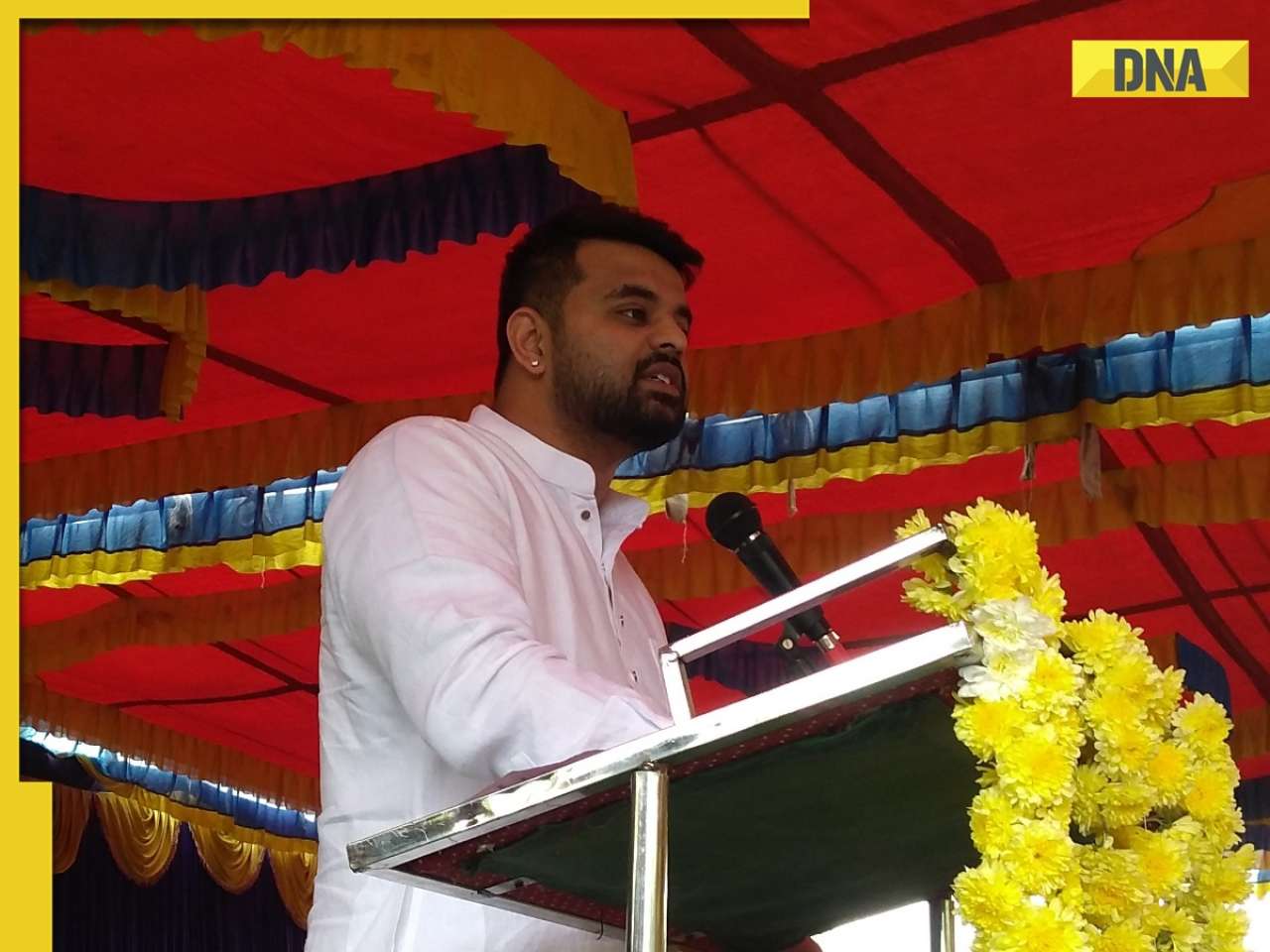
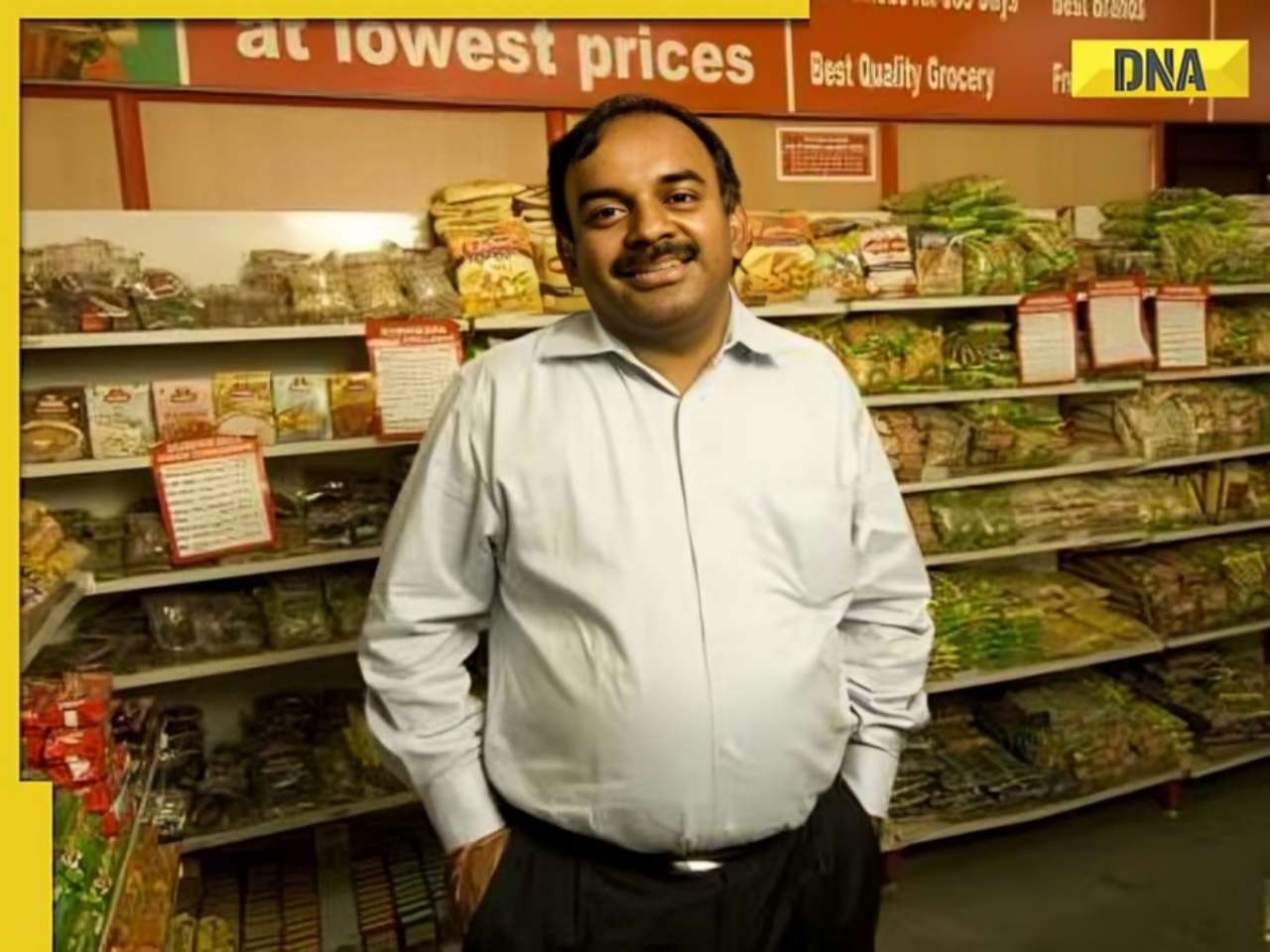


























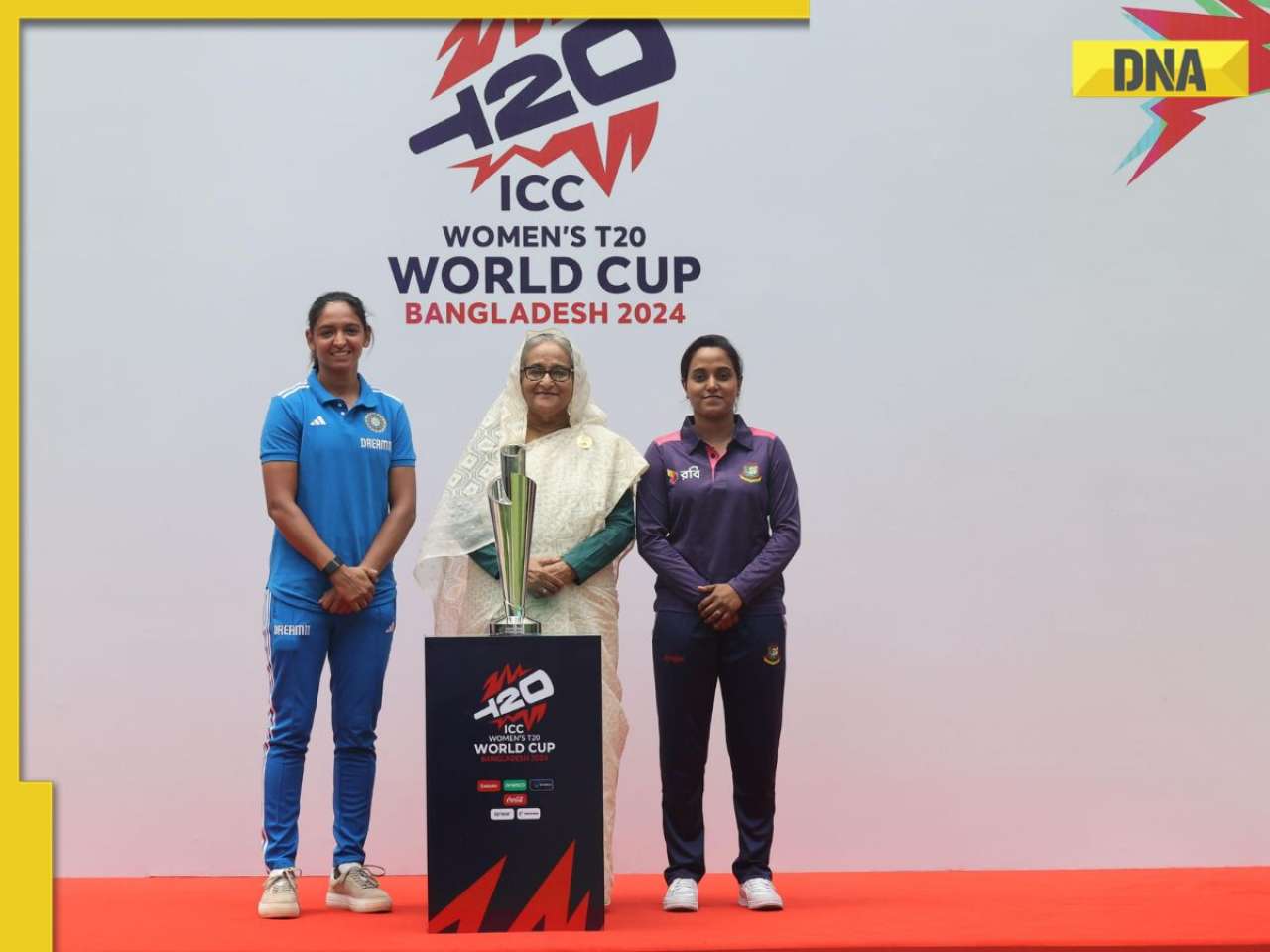









)



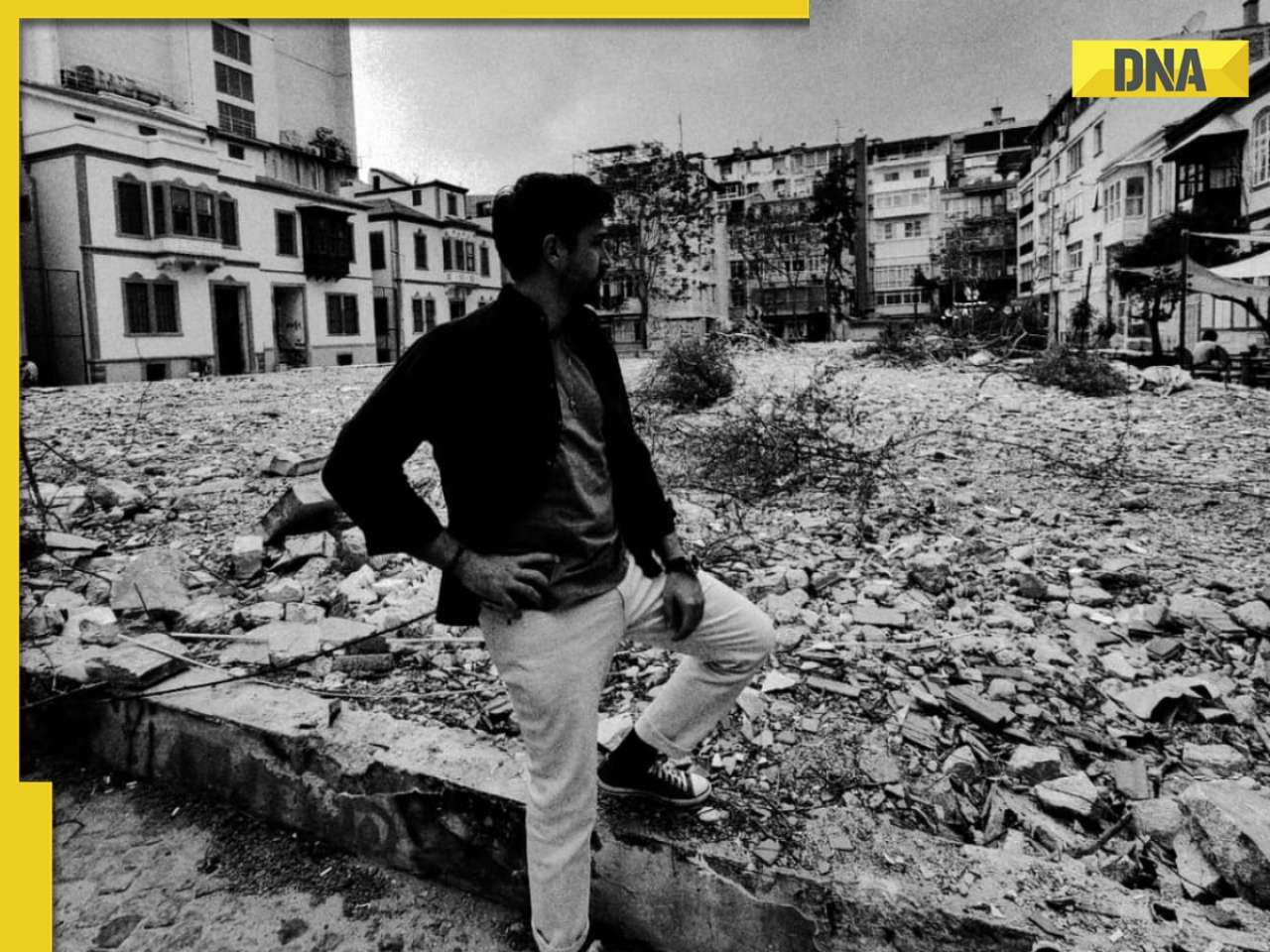


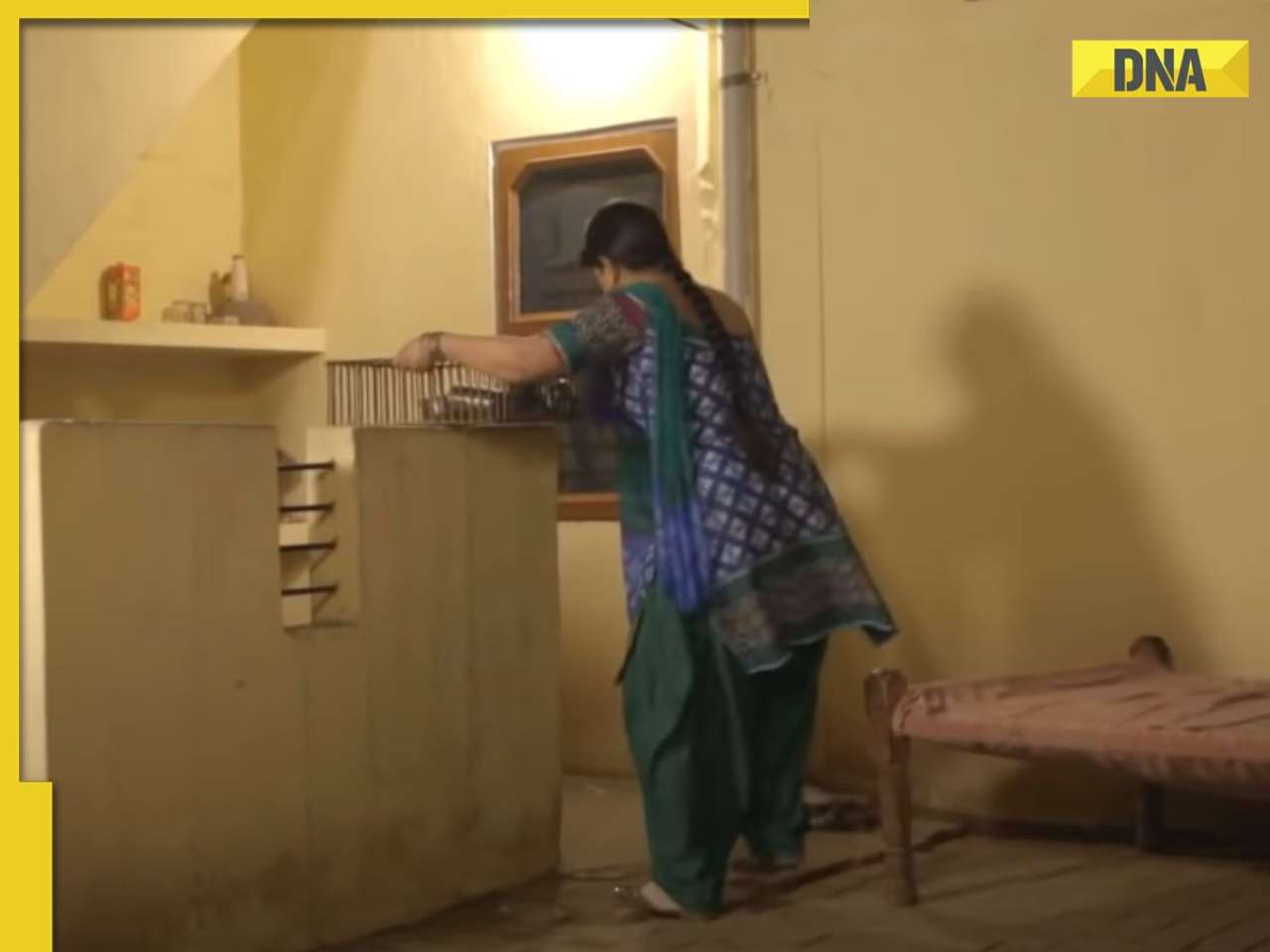
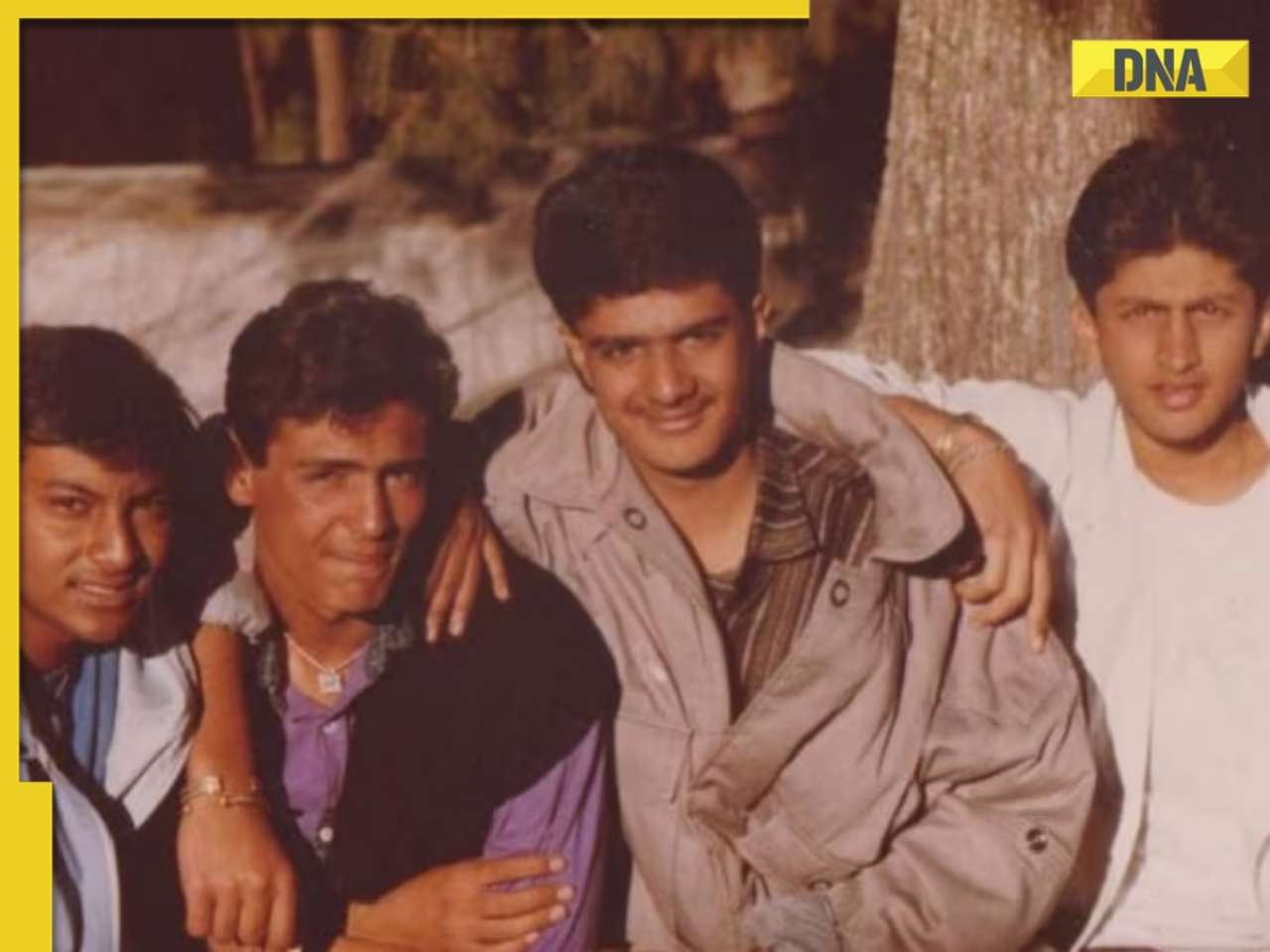
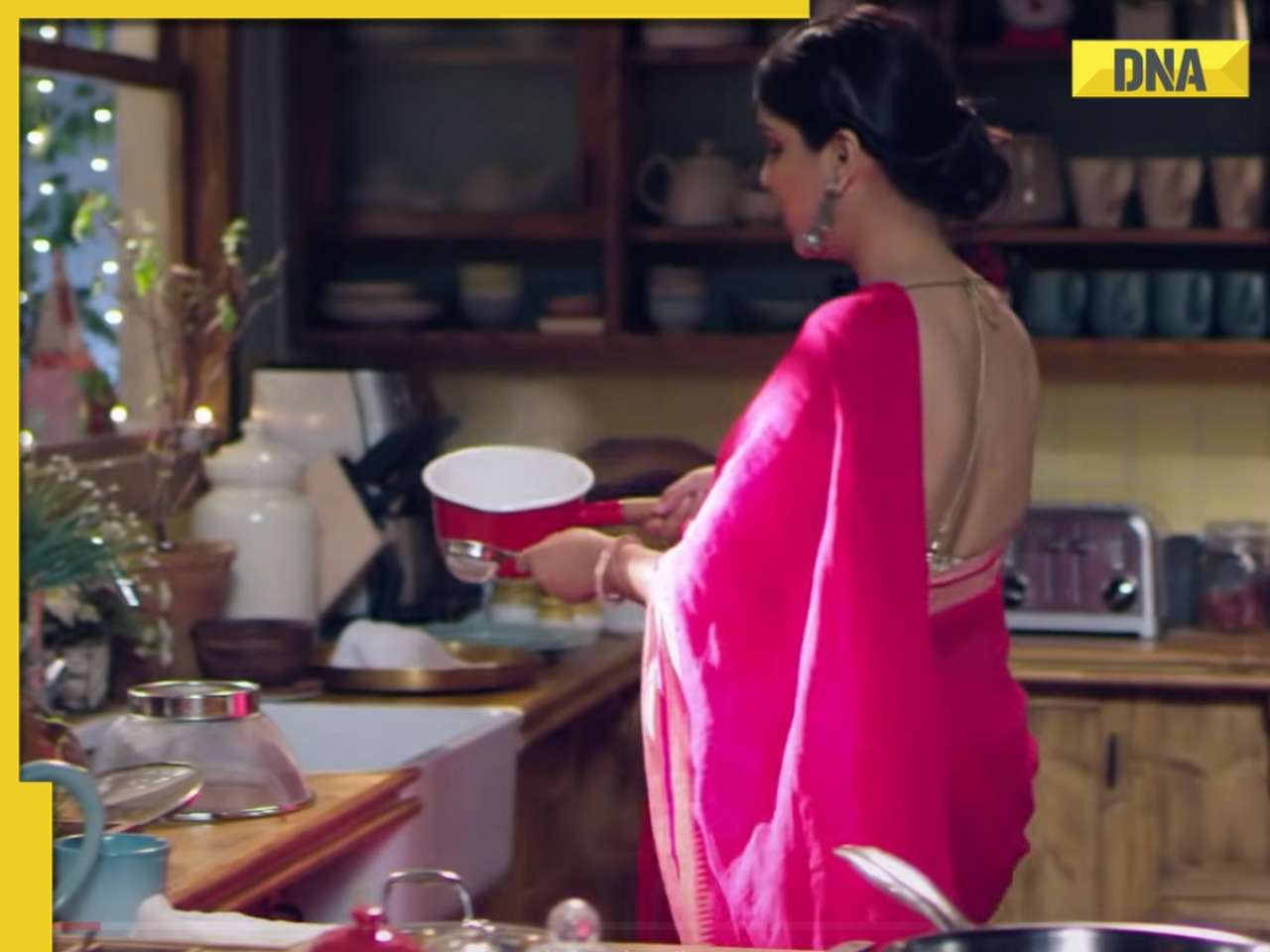


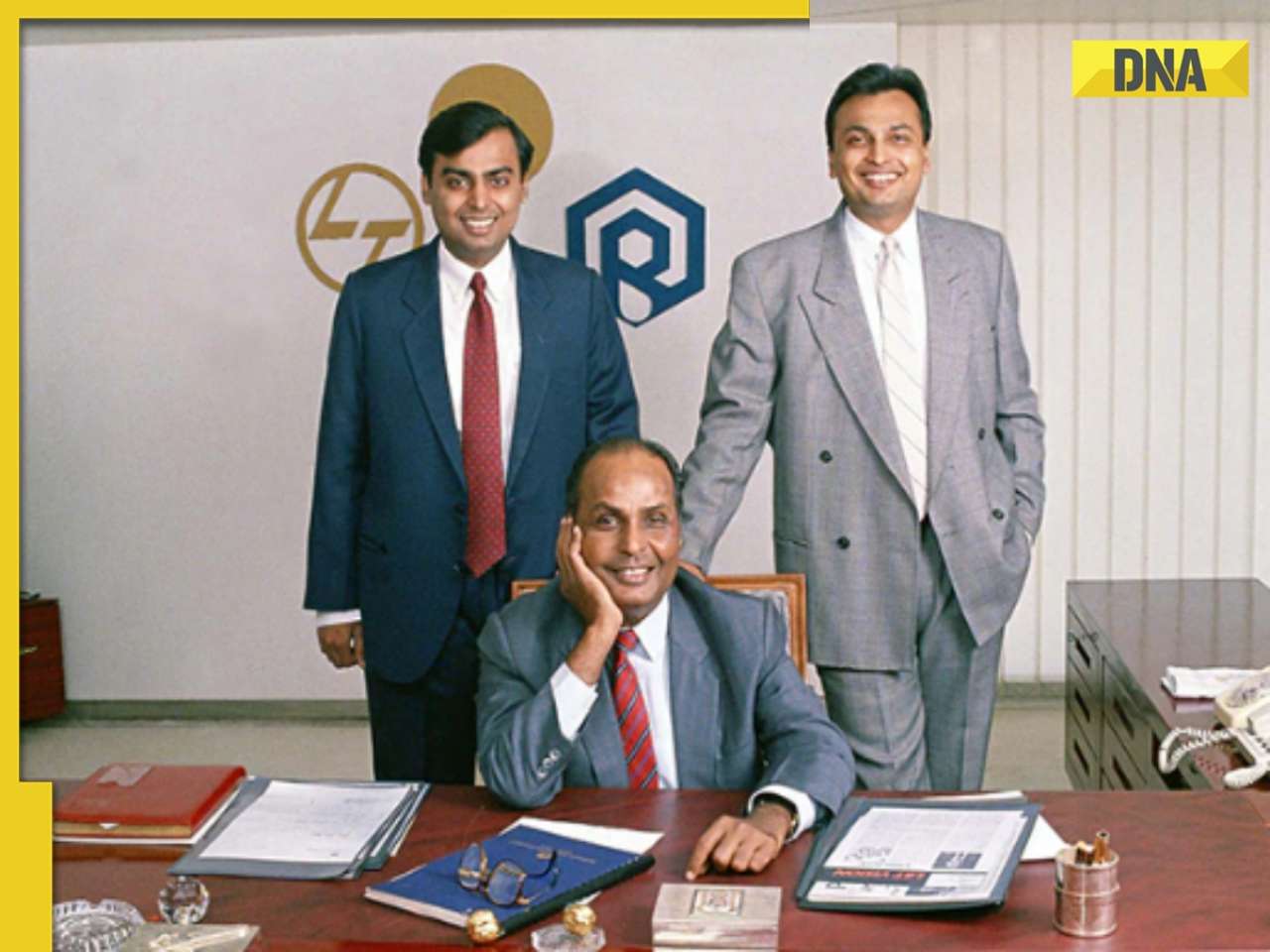





)
)
)
)
)
)